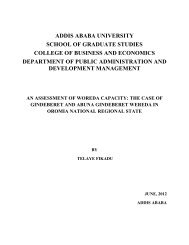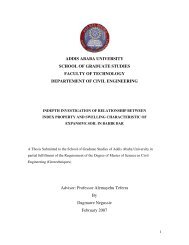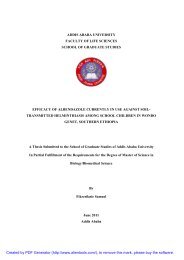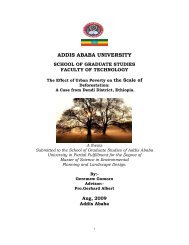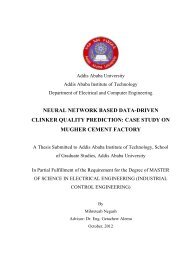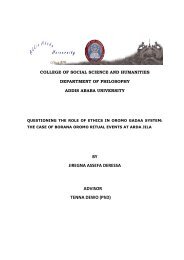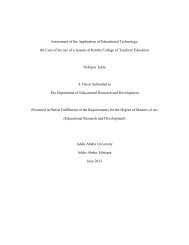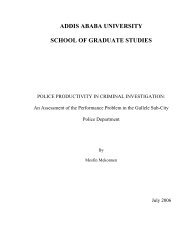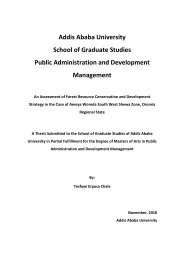FACTORS THAT CONTRIBUTE TO THE PROBLEMS EFL ...
FACTORS THAT CONTRIBUTE TO THE PROBLEMS EFL ...
FACTORS THAT CONTRIBUTE TO THE PROBLEMS EFL ...
You also want an ePaper? Increase the reach of your titles
YUMPU automatically turns print PDFs into web optimized ePapers that Google loves.
part of the speech.” This tells that one requirement for good listening comprehension<br />
is knowledge of the vocabulary used in the listening text.<br />
A problem many <strong>EFL</strong> learners have, has to do with the multiple meanings of<br />
words and the fact that many students know only the most common meaning of a<br />
word. When the word is encountered in one of its less common uses, students are<br />
confused. This can be illustrated with a sentence in which a word appears several<br />
times, each time with a different meaning. Or, when the listening text is crowded<br />
with several unfamiliar words which demand deep knowledge of vocabulary, then it<br />
leaves the learner groping for the meaning of such unfamiliar words.<br />
The other problem of <strong>EFL</strong> listening in relation to vocabulary is getting words<br />
which seem similar in sound. In English there are different words which seem<br />
similar in sounds but different in meanings (as ship/sheep, meat/meet, fit/feet,<br />
write/right, sight/site, light/light, etc) (Underwood 1989:9). When the foreign<br />
listeners come across such words, they may fail to distinguish one word from the<br />
other with similar sound. Those foreign listeners who often depend on context are<br />
easily able to distinguish between such words. This happens because the context<br />
nearly always makes it obvious which of the two words is being spoken.<br />
Words with similar sound confuse the learners when occur within a stream of<br />
speech. Therefore, a student should be exposed for such words and needs to<br />
learn their differences in meaning. In addition, the learner needs to learn the<br />
expressions that are common in spoken English. Underwood (1989:13) asserts<br />
that foreign listeners are required to recognize the most commonly used interactive<br />
expressions (such as well/uhuh/mhm); their role in speech is valuable.<br />
2.3.4 Listening Environment<br />
Listening factors that are related to the physical setting where the teachinglearning<br />
process of <strong>EFL</strong> listening is taking place can affect the learners listening<br />
comprehension. Some of these factors that are claimed to affect the students <strong>EFL</strong><br />
listening comprehension are those concerned with environmental distractions or<br />
associated visual support.<br />
As far as the environmental distractions are concerned, environmental noises<br />
may originate from the surrounding sounds at the time of listening. If these noises<br />
come while the students engaged in listening, they can be a potential source of<br />
28




